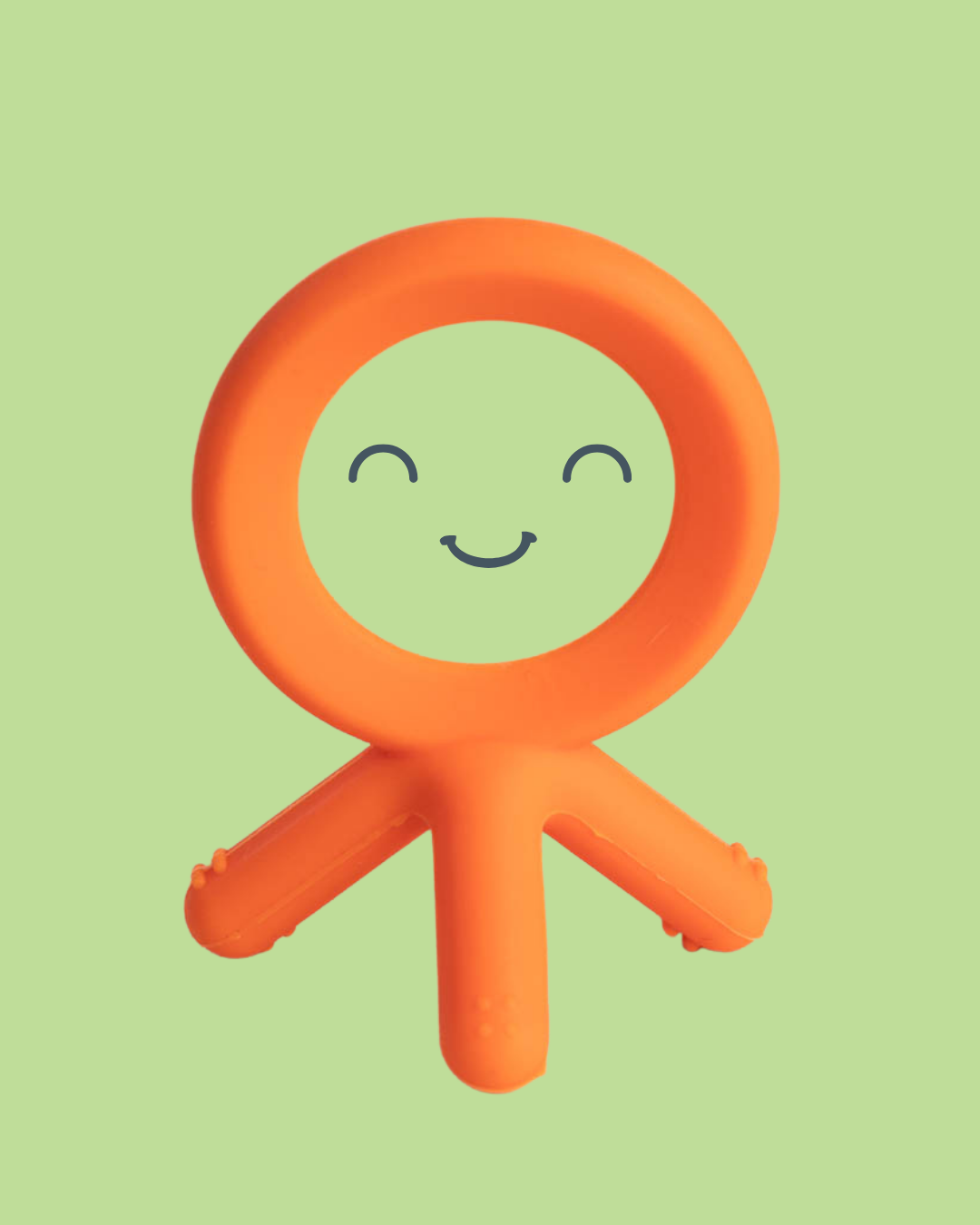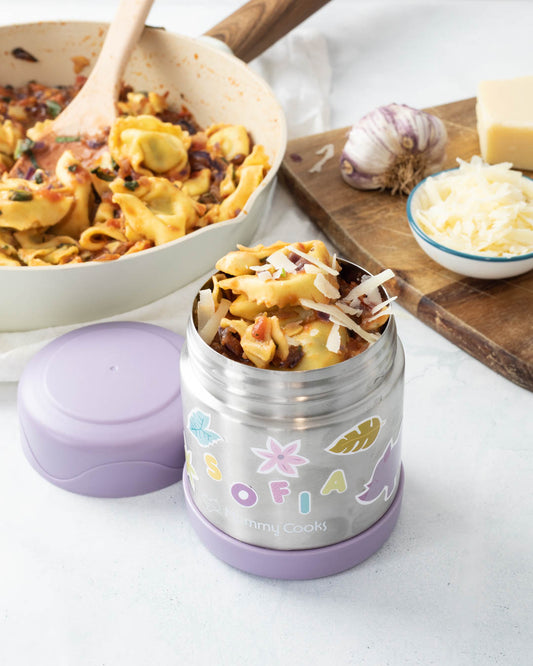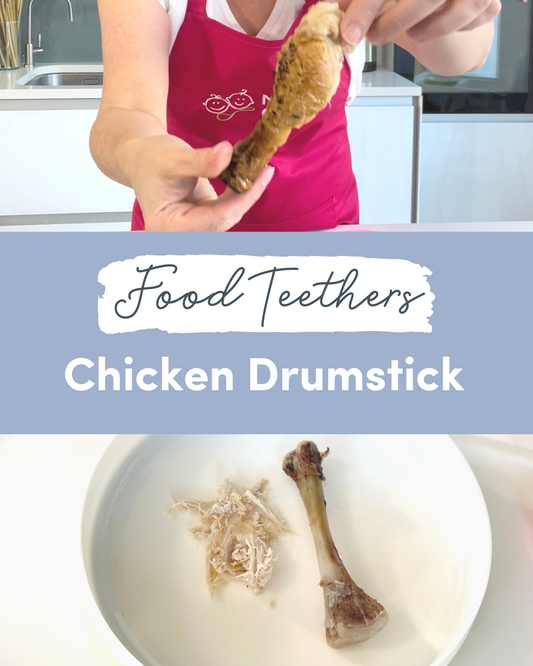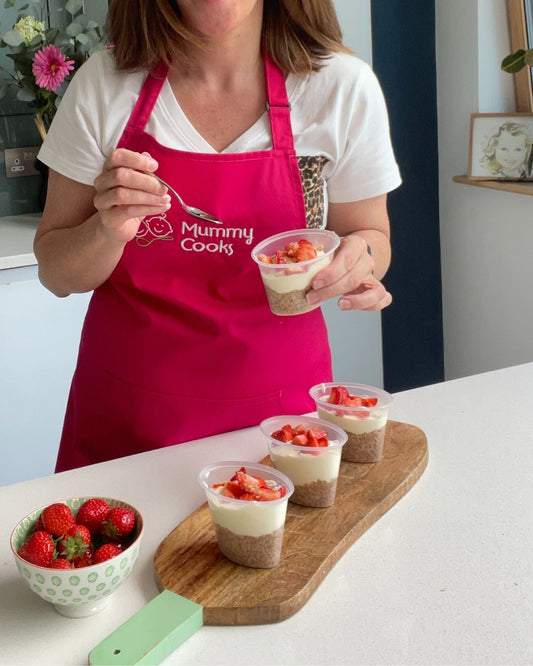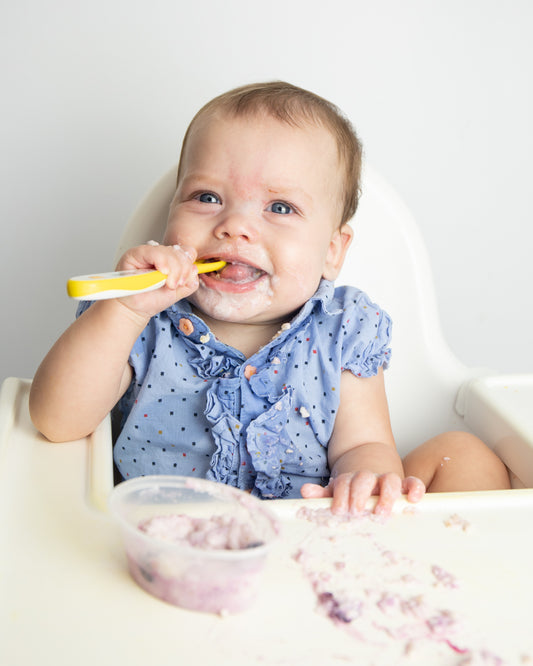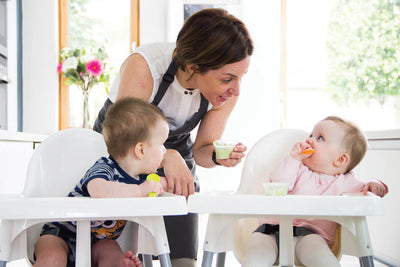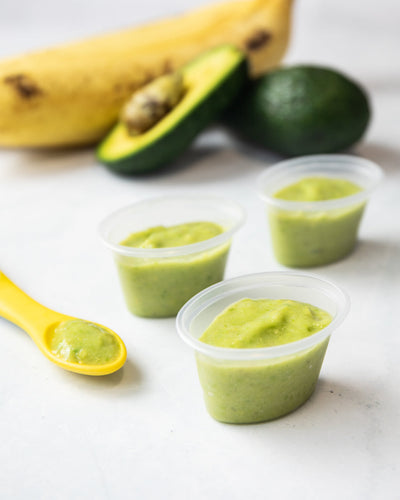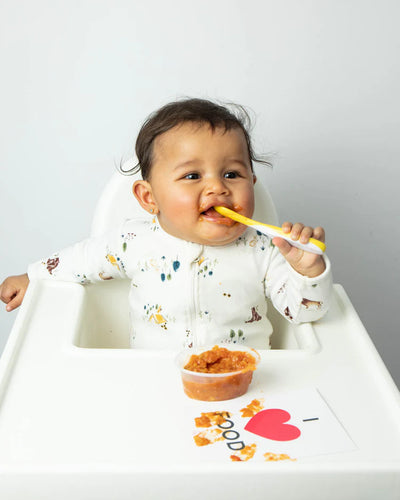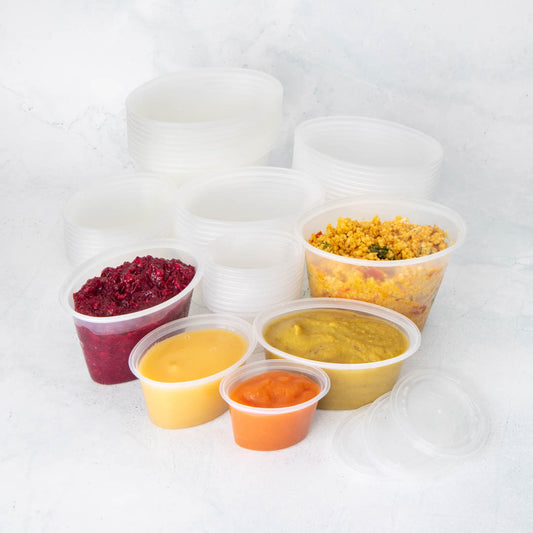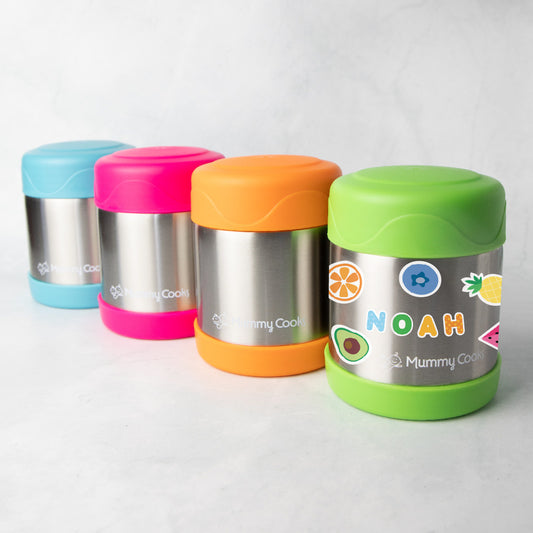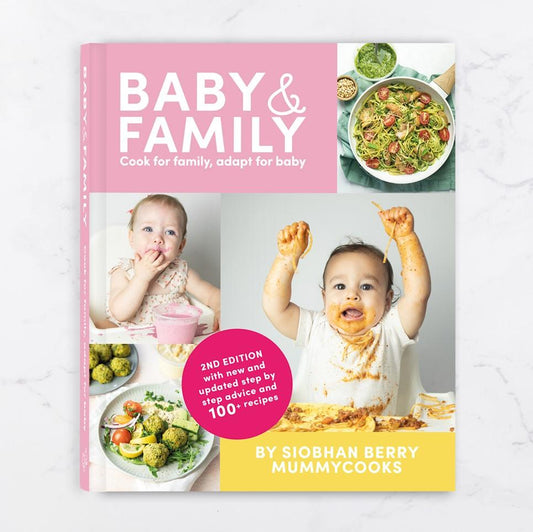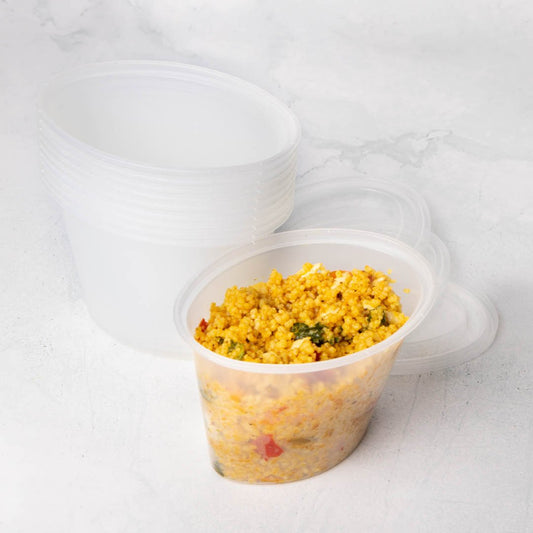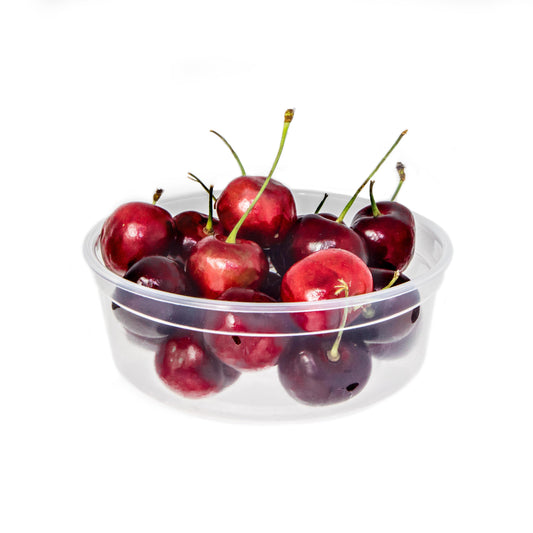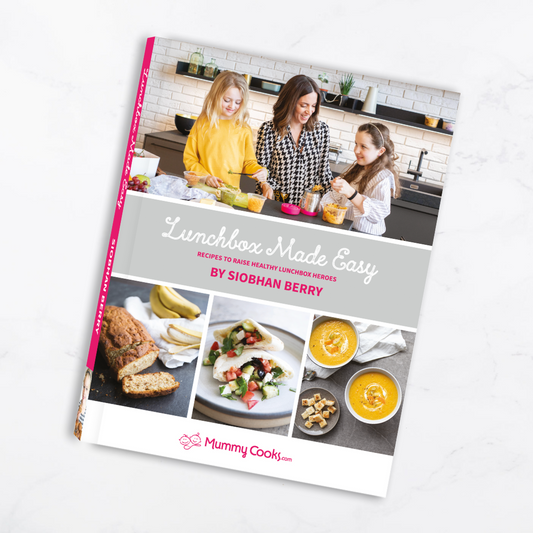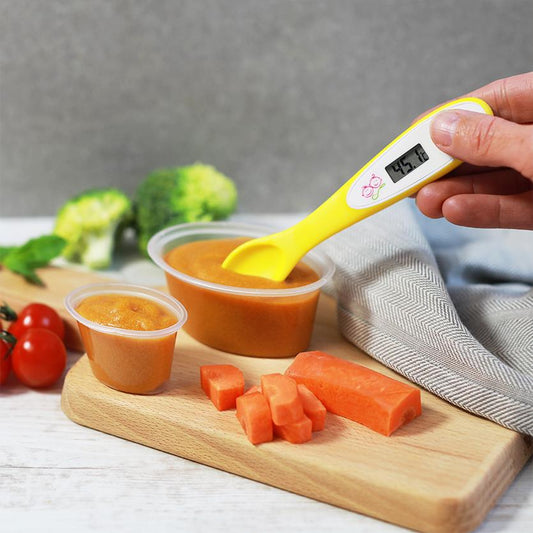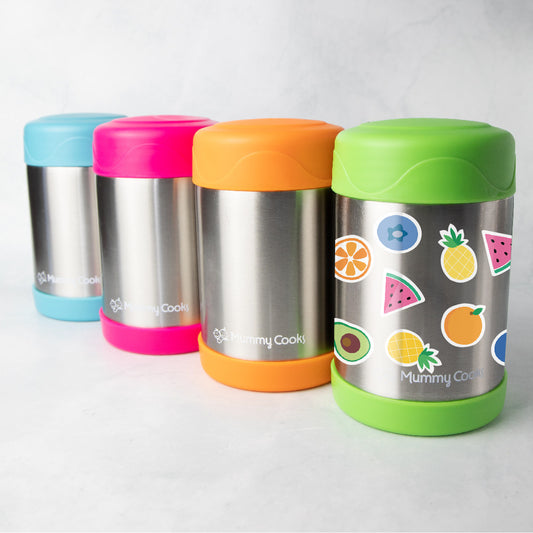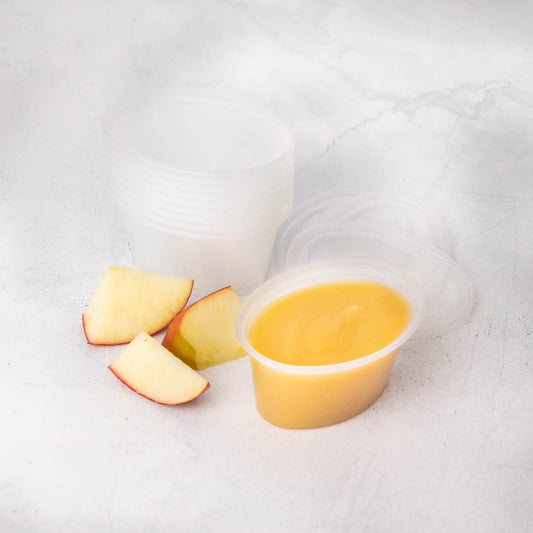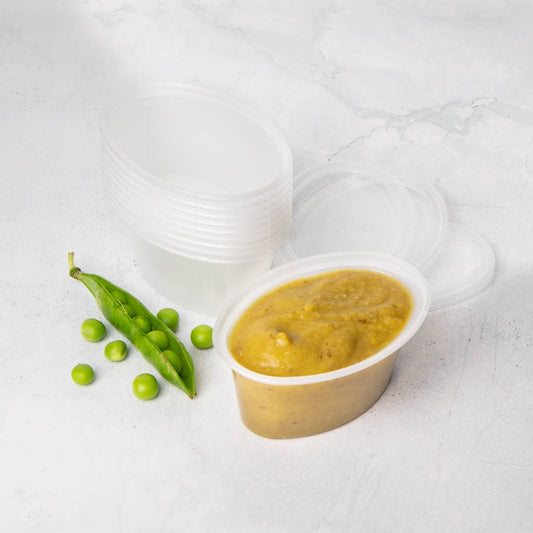Written by Catriona Fahey, Paediatric Occupational Therapist
A big question parents have in the early stages of weaning is ‘Can My Baby Chew and Swallow Real Food, and How Will I Know?’. This is why we enlisted our resident Paediatric Occupational Therapist Catriona Fahey (aka my little sister) to help with this question. See her advice below on how to help your baby learn to chew!
Teethers are imperative in oral development, promoting tongue lateralization, and teaching your baby to bite with their back gums! Let me explain:
Developing Lateral Motion
Children first learn to place things in the middle of their tongues. For example, in the initial stages of weaning when they’re first feeding your baby may only put their first runny purées near the roof of their mouth. This is why they need to be this texture in the first weaning stage, so they can easily swallow their first foods without the need to easily move food around their mouth or chew.
As your baby grows, we want them to learn how to use their tongue to go from side to side. Developing lateral tongue motion will allow them to then move food around their mouth, aiding chewing and swallowing. This is where a teether is vital. Biting on a teether (especially side biting), encourages the tongue to move towards the side to find that stimuli.
Introducing a Teether
You can introduce a teether as early as 2 months (note: without food).
Start with a teething toy such as a Quadopus. This will be key in developing your baby’s hand-eye coordination - teaching them how to move objects towards their mouth before they can have fun chewing on it and exploring the textures of the Quadopus feet with their mouth.
Learning to Chew
At 3 months you can then introduce a Training Spoon Teether.
Did you know? When your baby learns to chew, they don’t even need teeth to do this. Let them place the spoon in their mouth, near the back of their gums - this will allow them to practice chewing. You may find your baby keeps placing it in the centre of their tongue. Gently move it to encourage them to chew at the back of their gums.
You want to focus on jaw strength and control so that they’ll eventually learn to bite back on their gums. Their teeth are located just underneath their gums so even if you don’t see them, they are there and allow your child to chew soft foods and even meat.
By introducing a teether from three months your baby will easily manage the transition onto solid food at six months. They will know exactly how to bite down on food and move it around their mouth.
Note: If your baby is older than six months, has already started weaning and you find that they are gagging often, I would recommend taking a step back. Give them a teether in between feeds so that they can learn to chew first in order to help them manage food in their mouth.
Bio:
Catriona has worked for over 19yrs as a Paediatric Occupational Therapist in the community with all age groups and abilities. She is passionate about her work and has completed many additional courses to enhance her knowledge e.g. sensory integration modules, feeding, handwriting and visual perceptual. Catriona continues to participate in relevant training regularly and is a member of the Association of Occupational Therapists and is registered with CORU (Irelands multi-professional health regulator).

